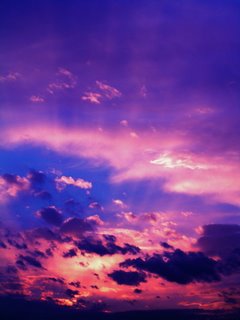Cliffs Where I Have Been Abandoned

So here I am again, risking heartbreak. They say you can’t fall in love if you don’t take a chance and that you can’t stay in love unless you are ready to commit. Despite the claims of friends, relatives, employers and ex-girlfriends that I am incapable of committing to anything, I’ve already decided to take another chance. Maybe it’s the first wave of autumn air waking me from my languid summer slumber. I start to come alive a little bit in the Fall.
I think it has a lot more to do with the return of my favorite TV shows – it is a time when cliffs will be unhung only to be replaced by more perilously hung cliffs with each episode. Some people get through long winters that offer little hope for life and love just by watching their favorite serial drama. I’m not quite at that stage myself, but my fear of commitment is tested every year at this time when new shows come out and I have to decide whether or not I’m going to watch them. It’s not that I’m afraid of being disappointed that a new show will suck - it’s that I’m afraid a new show will be great and will then be cancelled and I will be crushed. It is like finding the love of your life for twenty-two wonderful dates only to have her sucked up into an alien ship never to return.
I remember God, the Devil and Bob, with James Garner voicing the Almighty. A great concept for an animated adult series that just didn’t wasn’t allowed the time to catch on. And there was Earth 2 and Nowhere Man, both of which were strong serial thrillers along the lines of Lost, but they came a decade or so too soon to be appreciated. And worse, they finished with terrific cliffhangers. Of course, I’ve mentioned Firefly before. At least the film added what could almost be called an intermediate ending to the series. Shows like Tru Calling and Boomtown had potential. Boomtown was, in fact, one of the few cop shows I’ve ever been able to watch. The idea of having a story unfold gradually through multiple personal perspectives of all the characters involved allowed for complex and suspenseful storytelling and humanized all the characters in the process. And having Alicia Silverstone together with Ryan O’Neal on Miss Match was inspired casting. The premise of a lawyer who operates a matchmaking service on the side combined legal drama with romantic dramedy. And then pfft! Hiatus after a half season and its devoted fans were left feeling like they couldn’t find love even through TV. The biggest heartbreak of all was Max Headroom which was allowed to run for an extra half season before being pulled. I believe to this day that some executive somewhere finally woke up and said, “Hey! Maybe supporting a TV show that attacks television doesn’t make us look hip and edgy, but just stupid,” and quickly pulled it.
This year my candidates for wooing are Smith and Jericho – Smith mainly because it’s a crime show that isn’t isn’t isn’t about cops and instead focuses on a group of heist meisters. Let’s have some sympathy for the devil once a week in primetime. And Jericho is an obvious choice for me, with my love of disaster movies and my nostalgia for the good old days when a Republican nuclear war would end it all quickly rather than now when a Republican series of wars will end it all slowly. You could argue it’s simply the inverse of Lost – a small group of people with dark secrets are stranded when the rest of the world endures a nuclear catastrophe.
The pilot episodes have been promising and there’s been a lot of teasing going on. The best of it so far is that I don’t have to choose between them and can play the TV field for another season. For those first weeks of Fall my social life can afford to go on hiatus. I’ll leave major decisions hanging for a little while with a sign on my life saying, “To be continued…” And, who knows? If I can learn something about attachment and commitment to TV shows maybe I can move on to real relationships.

